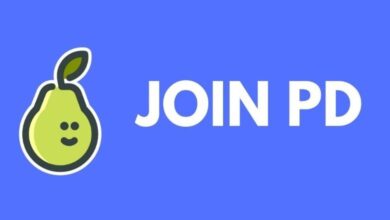In the quest for better health and fitness, monitoring what we eat is paramount. The rise of food tracker apps has revolutionized the way we approach nutrition. These digital tools provide us with the means to record our dietary habits, analyze nutritional content, and make informed decisions about our eating patterns.
At its core, the concept of food tracking revolves around the simple premise of self-awareness. By logging what we eat and drink, we gain invaluable insight into our dietary patterns, preferences, and behaviors. Let’s delve into the world of food tracker apps and explore how they can empower us to make healthier choices.
Understanding Food Tracker Apps
Food tracker apps are software applications designed to help users monitor their dietary intake. They typically offer features such as:
- Barcode Scanning: A key feature of many food tracker apps is the ability to scan barcodes on packaged foods using a smartphone camera. This functionality enables users to quickly and accurately log nutritional information without manual entry, saving time and effort.
- User-Friendly Interfaces: Food tracker apps typically feature intuitive interfaces that make it easy for users to log their meals and navigate through various features. The user experience is designed to be seamless and accessible to individuals of all levels of technological proficiency.
- Comprehensive Databases: These apps boast extensive databases of foods, beverages, and ingredients, ensuring that users can easily find and log the items they consume. The databases often include nutritional information for both generic and branded products, as well as options for custom entries.
- Meal Logging Options: Users can log their meals in various ways, including manually entering individual food items, creating custom recipes, or selecting from pre-existing meal entries. Some apps also offer meal-tracking features that allow users to record entire meals or snacks in one go.
- Nutritional Analysis Tools: Food tracker apps provide detailed nutritional breakdowns for logged foods, including calorie counts, macronutrient proportions (carbohydrates, proteins, fats), and micronutrient content (vitamins, minerals). This information helps users better understand the nutritional composition of their diet.
Benefits of Food Tracker Apps
The adoption of food tracker apps can yield numerous benefits for individuals striving to improve their health:
- Improved Portion Control: Food tracker apps encourage users to be mindful of portion sizes by requiring them to input serving sizes accurately. This heightened awareness helps individuals control their calorie intake and prevent overeating.
- Enhanced Nutritional Education: Through the process of logging and analyzing their meals, users gain a deeper understanding of nutritional concepts such as macronutrients, micronutrients, and dietary guidelines. This educational aspect empowers individuals to make more informed choices about the foods they consume.
- Identification of Dietary Patterns: By tracking their eating habits over time, users can identify recurring patterns and trends in their diet, such as excessive consumption of certain food groups or irregular meal timing.
Recognizing these patterns allows individuals to make targeted adjustments to their eating behavior for better overall health. - Support for Special Dietary Needs: Food tracker apps can cater to individuals with specific dietary requirements, such as vegetarians, vegans, or those with food allergies or intolerances.
Many apps offer customization options and filters to accommodate various dietary preferences and restrictions, ensuring that users can adhere to their chosen eating plan effectively. - Facilitation of Meal Planning: Some food tracker apps offer meal planning features that enable users to pre-plan their meals and snacks in advance. This not only helps individuals stay organized and on track with their dietary goals but also saves time and reduces the likelihood of impulsive, unhealthy food choices.
Tips for Success
To make the most of food tracker apps and maximize their impact on your health journey, consider the following tips:
- Set Reminders: Consistency is key when it comes to food tracking. Use the reminder feature within the app to prompt you to log your meals at regular intervals throughout the day. By establishing a routine, you’ll ensure accuracy in your tracking and stay on top of your nutritional goals.
- Experiment with Recipes: Be bold and get creative in the kitchen! Use the food tracker app’s recipe database and meal planning tools to explore new culinary adventures. Experimenting with different ingredients and flavors not only keeps meals exciting but also adds variety to your diet, ensuring you get a wide range of nutrients.
- Sync with Other Devices: For a more holistic view of your health, consider syncing your food tracker app with other health and fitness devices such as fitness trackers or smart scales. By integrating data from multiple sources, you’ll gain a comprehensive understanding of your overall health and wellness journey.
- Stay Hydrated: Hydration is often overlooked but is crucial for overall health and well-being. Don’t forget to track your water intake using the app. Aim to drink at least eight glasses of water a day, and adjust your intake based on factors like activity level and climate.
- Practice Mindful Eating: Use the food tracker app as a tool for practicing mindful eating. Take the time to savor each bite, paying attention to taste, texture, and how the food makes you feel. Mindful eating can help you tune into your body’s hunger and fullness cues, preventing overeating and promoting a healthier relationship with food.
Conclusion
Food tracker apps offer a powerful tool for anyone looking to take control of their nutrition and improve their health. By logging meals, analyzing nutritional data, and setting personalized goals, users can gain valuable insights into their dietary habits and make informed choices that align with their health objectives. With the right approach and consistency, these apps have the potential to empower individuals on their journey to better health and well-being.




